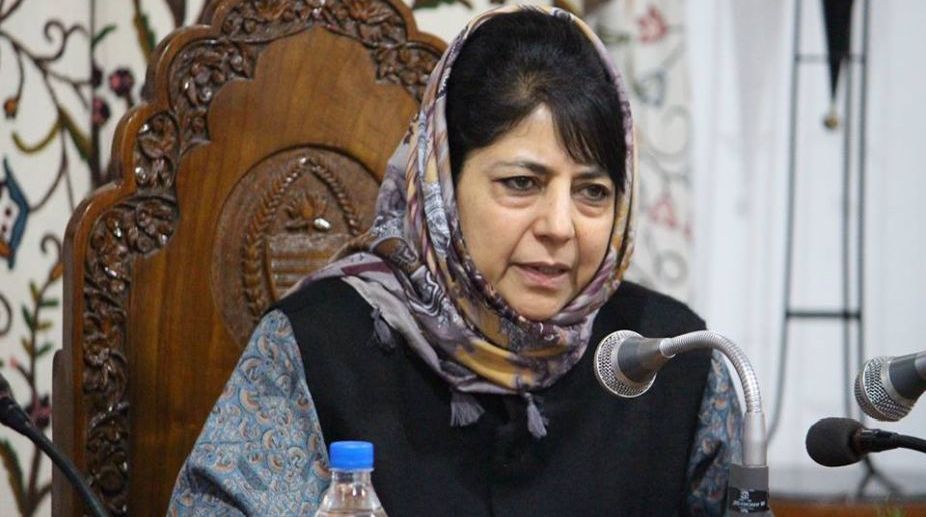A degree of desperation at the pathetic law and order situation may have been the underpinning, but still there is reason to appreciate yet another courageous plea for peace from the chief minister of Jammu and Kashmir. It cannot be easy for her to talk like a dove when her partner in the “coalition of contradictions” adopts a hawkish posture, and confuses meekness with weakness.
Yet Mehbooba Mufti is not wrong in lamenting that in the 21st century it is “unfortunate” that people in border areas should be seeking bunkers for protection. She is correct in asserting that it is the people of her state who bear the brunt of the Indo-Pak acrimony ~ not those ensconced on Raisina Hill.
Advertisement
It is, however, somewhat fanciful for her to aver that “Give me peace, I will pursue dialogue, opening of routes along the LoC… I wish people on both sides would march together on the path of growth and development.” Fanciful because even if she does create a climate in which dialogue is revived, the baggage of history militates against cordiality becoming a reality. Neither Islamabad nor New Delhi now boast the level of statesmanship required to re-write tortuous history. If Vajpayee failed… what chances for Modi?
Maybe Mehbooba could try another angle to try and convince New Delhi (and sections of the military leadership) that there is a dividend to be gained from trying to promote a reduction of hostility and tensions. Internal “peace” will reduce the burden on the security forces: presently they have to simultaneously tackle heavily armed, well-trained and highly-motivated militants as well as stone-pelting “locals” who tend to “tie the troops down”.
Any progress in winning over the “hearts and minds” of the folk in the Valley will “free up” the security forces when tackling militants. “Fighting on two fronts” is a term suggesting battling the Chinese and Pakistan armies at the same time ~ a mini-version of that now obtains in the counter-insurgency operation in J&K. Militant activity is cyclical, it is a failure of successive governments that when the forces gain the upper hand over the militants no sustained effort is made to translate that success into winning the people over.
The chief minister is aware that her calls for peace will not be appreciated by her coalition partner, but like most political leaders in the Valley believes there is no alternative. Saffron may see “red” since reducing tensions would also mean a reduction in the vote-bank it has created outside the Valley.
Yet saner elements in the Army would concede that Pakistan’s machinations would lose their “edge” if the folk in the Valley did not perceive the Indian forces as inimical, hostile. It would require no great strategist to endorse that peace can be won without losing honour.











